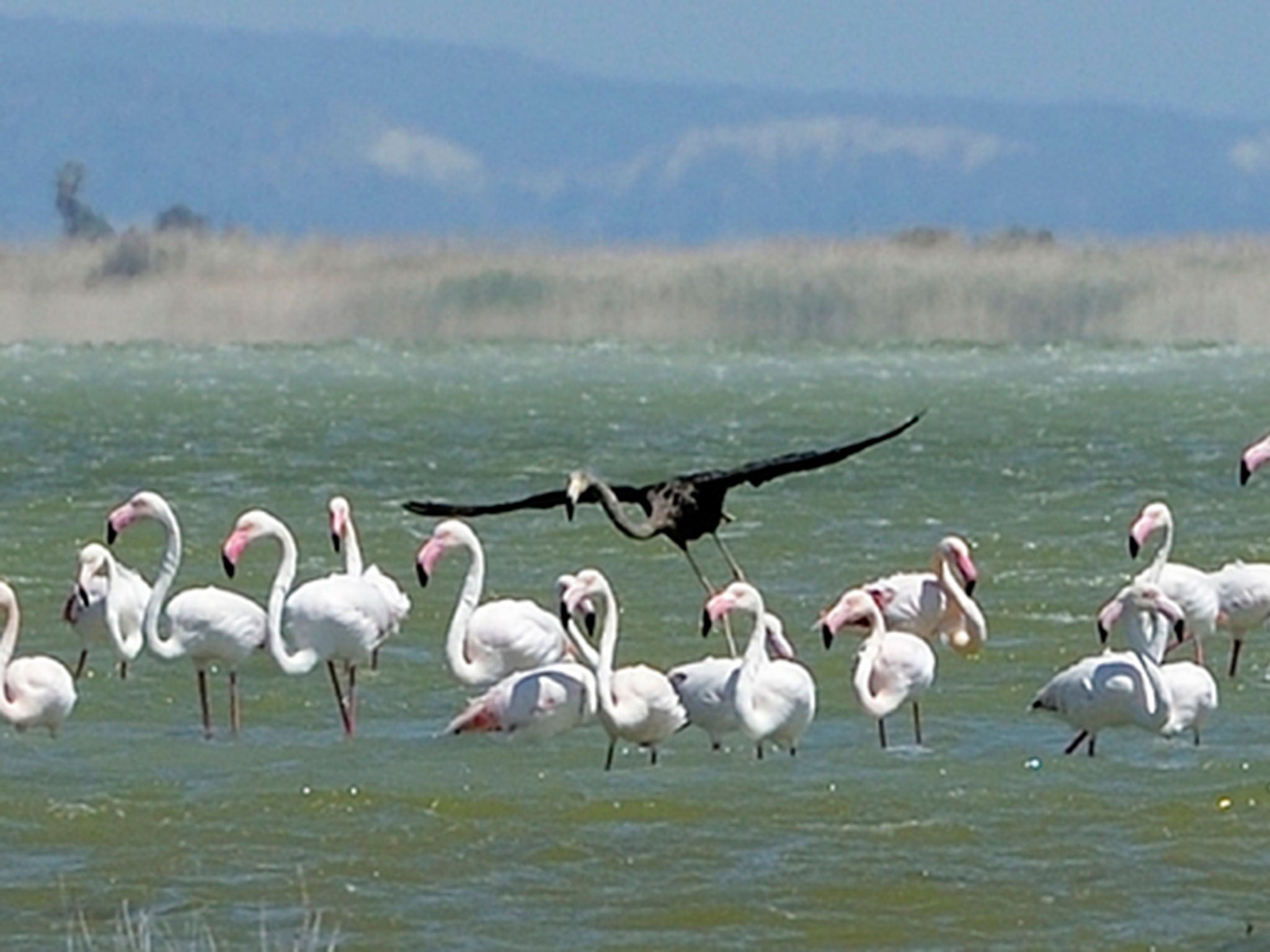
A number of sites recently reported that scientists in Cyprus may have just discovered the only black flamingo in the world. To some, this may seem a tad confusing, as all of the sites also note that another black flamingo was recently spotted in Israel.
But to be fair, the Israel sighting was in March of 2013 (just about two years ago), so we could assume that the Israel flamingo might have passed on by now; however, these creatures live, on average, 20 to 30 years, so there’s no reason to assume that Israel’s black flamingo is dead. In fact, one flamingo in Adelaide Zoo lived to be a staggering 83 years old.

Yet, flamingos do migrate vast distances, so it is possible that, in the Cyprus sighting, we are seeing the same flamingo that was spotted in Israel two years ago; however, this seems rather unlikely.
Black flamingos are amazingly rare, but basic probability suggests that they are not so rare that there is only one. As Tim Fitzer, of the Sacramento Audubon Society, put it, “the odds of a flamingo being born melanistic (black) are very low, but there are lots of flamingos out there.” Globally, it is estimated that there are some 5 million flamingos. However, the greater flamingo (the species sighted here) is believed to only have a population of a couple million.
Yet, conservationist Michaeline Moloney, of the Flamingo Specialists Group, asserts that the two birds are the same. She claims that the videos filmed in Cyprus and Israel show the exact same bird, which are distinguishable by how they look and interact with others.
But even if this is the same bird in each sighting, it does not mean that it is the only black flamingo in existence. In any case, I digress too much…

Typically, flamingos are born white and grey, but they turn a lush shade of pink around two years of age. This change in color is caused by the food that they eat, which has a high carotenoid (organic pigment) content. According to the Cornell Lab of Ornithology at Cornell University, melanistic animals (creatures that overproduce melanin, a process which changes their colors to black) are thought to be less common than albino organisms (creatures that have an absence of melanin, so they appear to be all white).
However, despite this rarity, scientists in Cyprus recently spotted a melanistic flamingo. Ultimately, the researchers think that both of the birds spotted have a genetic condition that causes them to create too much melanin and, as a result, they turn black.
Regardless of how rare they are, they are spectacular…
WATCH: Black Flamingo in Cyprus
